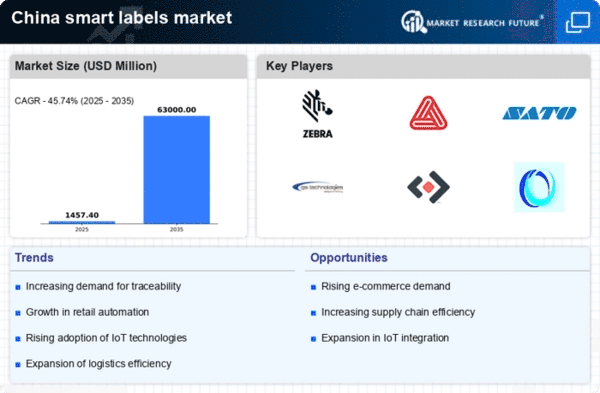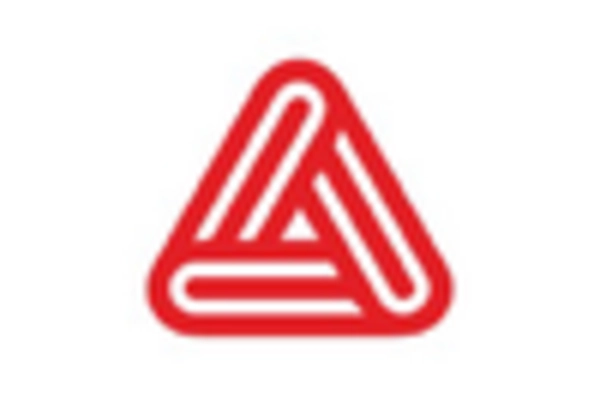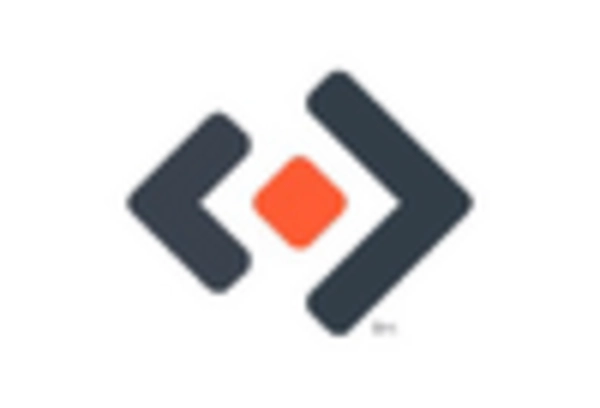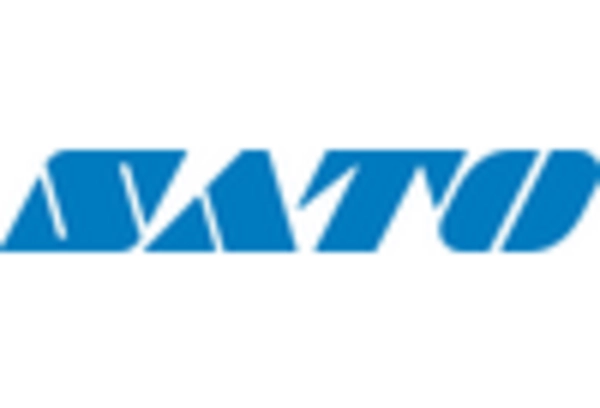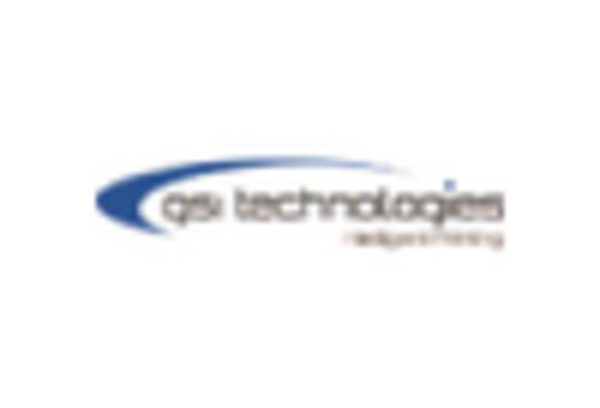Rising E-commerce Demand
The surge in e-commerce activities in China is a pivotal driver for the smart labels market. As online shopping continues to gain traction, businesses are increasingly adopting smart labels to enhance inventory management and streamline logistics. The integration of smart labels facilitates real-time tracking of products, thereby improving supply chain efficiency. In 2025, the e-commerce sector in China is projected to reach approximately $2 trillion, indicating a robust growth trajectory. This growth necessitates advanced labeling solutions to manage the vast volumes of goods being shipped. Consequently, The smart labels market is likely to experience significant expansion. Retailers and logistics companies seek to optimize their operations and meet consumer demands.
Technological Integration in Retail
The retail sector in China is undergoing a technological transformation. This transformation significantly impacts the smart labels market. Retailers are increasingly integrating smart technologies into their operations to enhance customer experiences and operational efficiency. Smart labels, which can interact with mobile devices and provide real-time information, are becoming essential tools for retailers. In 2025, it is anticipated that the smart retail market in China will exceed $500 billion, creating a substantial demand for innovative labeling solutions. This integration not only improves inventory management but also allows for personalized marketing strategies, thereby driving sales. As retailers seek to differentiate themselves in a competitive market, the adoption of smart labels is likely to accelerate.
Government Initiatives for Digitalization
The Chinese government is actively promoting digitalization across various sectors, which serves as a catalyst for the smart labels market. Initiatives aimed at enhancing technological infrastructure and encouraging innovation are paving the way for the adoption of smart labeling solutions. Policies that support the development of smart cities and the Internet of Things (IoT) are particularly relevant, as they create an environment conducive to the growth of smart labels. By 2025, it is projected that government investments in digital technologies will reach approximately $300 billion, further stimulating the smart labels market. This supportive regulatory framework is likely to encourage businesses to invest in smart labeling technologies, thereby enhancing operational efficiencies and customer engagement.
Increased Focus on Supply Chain Transparency
In the context of China's evolving market landscape, there is a growing emphasis on supply chain transparency. Consumers are increasingly demanding information about product origins and manufacturing processes. Smart labels, equipped with technologies such as RFID and NFC, provide detailed data that can be accessed by consumers and businesses alike. This trend is particularly relevant in industries such as food and pharmaceuticals, where traceability is crucial. The smart labels market is expected to benefit from this shift, as companies invest in labeling solutions that enhance transparency and build consumer trust. As of 2025, it is estimated that around 60% of consumers in China prioritize transparency in their purchasing decisions, further driving the adoption of smart labels.
Consumer Demand for Enhanced Product Information
In China, there is a notable shift in consumer preferences towards products that offer enhanced information and interactivity. This trend is driving the smart labels market as consumers seek more than just basic product details. Smart labels, which can provide interactive content such as nutritional information, usage instructions, and promotional offers, are increasingly appealing to tech-savvy consumers. As of 2025, it is estimated that around 70% of consumers in China prefer products with smart labeling features. This demand for enhanced product information is prompting manufacturers to adopt smart labels as a means to engage consumers and differentiate their products in a crowded marketplace. The smart labels market is thus positioned for growth as companies respond to these evolving consumer expectations.


